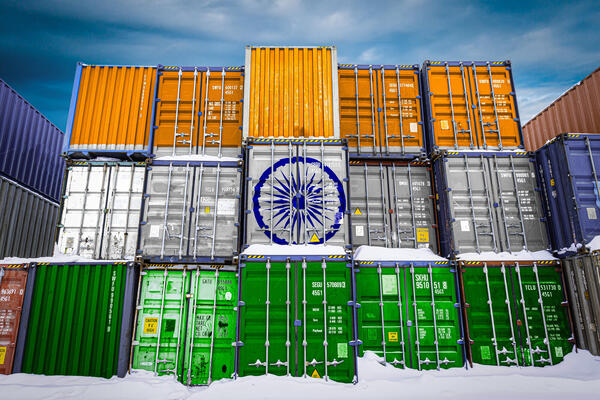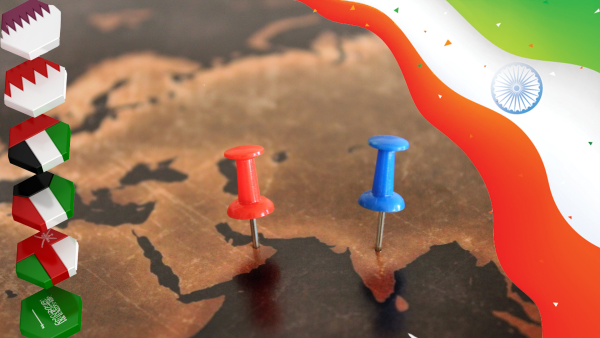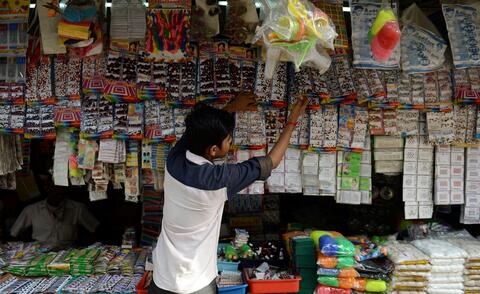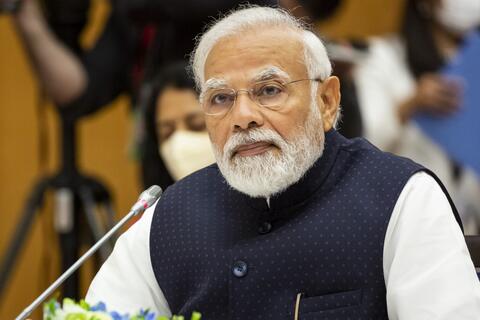Recent remarks made by Indian officials over the Prophet Mohammad have sent anger waves across many Muslim-majority countries, where thousands of people are demanding an official apology from India while calling for a boycott of Indian products.
Even though boycott efforts are still organized by individuals and not governments, official statements have been issued by several Arab states, particularly in the Gulf Cooperation Council condemning the comments made by Indian politicians Nupur Sharma and Naveen Jindal.
While no government has yet joined boycott efforts officially, concerns have been on the rise in terms of the financial damage such boycotts could inflict on the Indian economy.
To better understand the scope of the possible impact on India, we need to explore current trade relations between New Delhi and MENA countries, especially the oil-rich GCC.

India-GCC Trade Ties
For many decades, India has been regarded as one of the major trade partners of Gulf countries.
According to official data, GCC exports to India rose by 85.8% in 2021, generating $110.73 billion for the six economies. Similarly, Indian exports to the GCC in 2021 reached $44 billion, compared to 27.8 billion in the previous year. The post-pandemic year saw a 58.26% rise in Indian exports to the region.
Not only is India the world's third country in terms of oil consumption, accounting for about 4.6% of the world's total consumption of 97,103,871 barrels/day, but it is also one of the biggest importers of oil produced in the Gulf region.
India spends around $9 billion USD on both Saudi and Emirati-produced oil annually. In 2021, Iraq was the top exporter of oil to India, while Saudi Arabia came in the second rank, accounting for nearly 17% of the subcontinent's oil imports during the same year.
India's exports to GCC nations include; rice, sugar, pearls, precious and semi-precious stones; premium metals, jewelry, electrical machinery and equipment, and chemicals.
On the other hand, India receives petroleum products, premium metals, imitation jewelry, fertilizers, and chemicals, in addition to plastics from Gulf countries.
UAE, Saudi Arabia will still get wheat from India despite export ban - and foodstuff retailers are relieved https://t.co/no4XPw85qL
— Gulf News (@gulf_news) May 22, 2022
Moreover, India has been looked at by GCC governments as a potential alternative for Ukrainian wheat imports, which had stopped in the wake of the Russian war in Ukraine earlier this year.
The GCC has also been home for millions of Indians whose annual remittances make up billions of dollars for the Indian economy.
Nearly 7.6 million Indians live in the Middle East, including more than 3 million Indians in the UAE.
Source: India's Ministry of External Affairs
Last February, India and the United Arab Emirates signed the Comprehensive Economic Partnership Agreement (CEPA), which aims to enhance trade cooperation, lower tariffs, and open new investment opportunities between the two economies. The CEPA has gone into effect starting May 2022.
Finally, negotiations between India and the Gulf Cooperation Council are expected to reach a Free Trade Agreement this year. However, current tensions caused by remarks given by now-suspended Indian officials' against Islam are feared to delay or interrupt the process.









